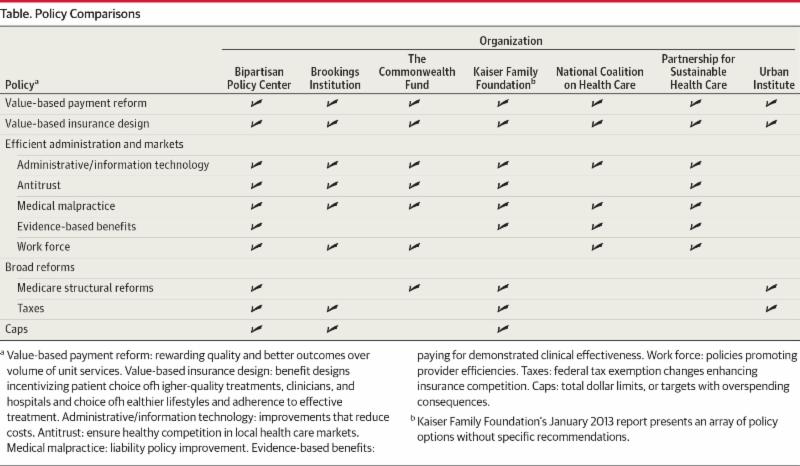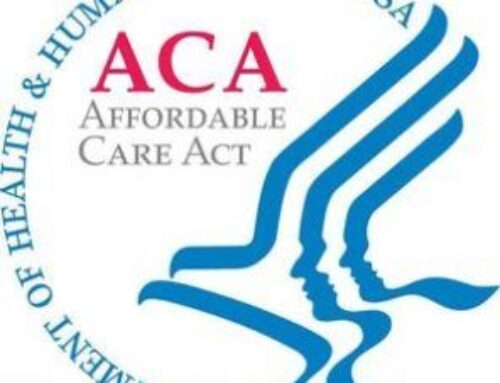October 23, 2013 – Over the past year, diverse policy centers and stakeholder coalitions including the Bipartisan Policy Center, Brookings Institution, The Commonwealth Fund, Kaiser Family Foundation, National Coalition on Health Care, Partnership for Sustainable Health Care, and Urban Institute presented plans for reforming the US health care system. In a recent JAMA analysis of proposals from these respected organizations, Value-Based Insurance Design (V-BID) and value-based payment reform were unanimously included as key elements for sustainable health care. Administrative efficiency, spending limits, and Medicare reforms were also identified. The inclusion of V-BID in each proposal demonstrates the growing multi-stakeholder and bipartisan political consensus among experts that V-BID is essential to a high-performing health care delivery system.
Policy Comparisons Table, The Journal of the American Medical Association
Developed by a multi-disciplinary team at the University of Michigan, the premise of Value-Based Insurance Design (V-BID) is to reduce barriers to high-value health services and providers and discourage the use of low-value health services and providers. By basing consumer cost-sharing on the clinical value – not the price – of services, payers can actively engage consumers in seeking high-value care and foster more regular conversations with providers regarding low-value services.






